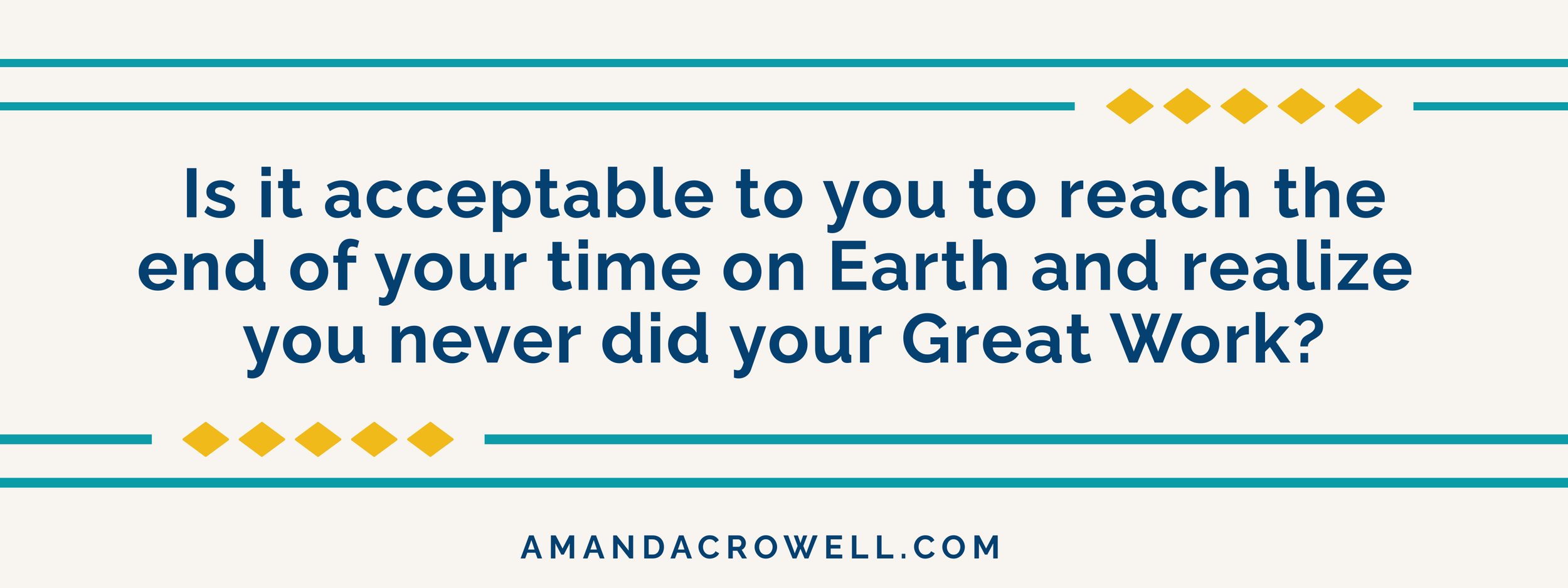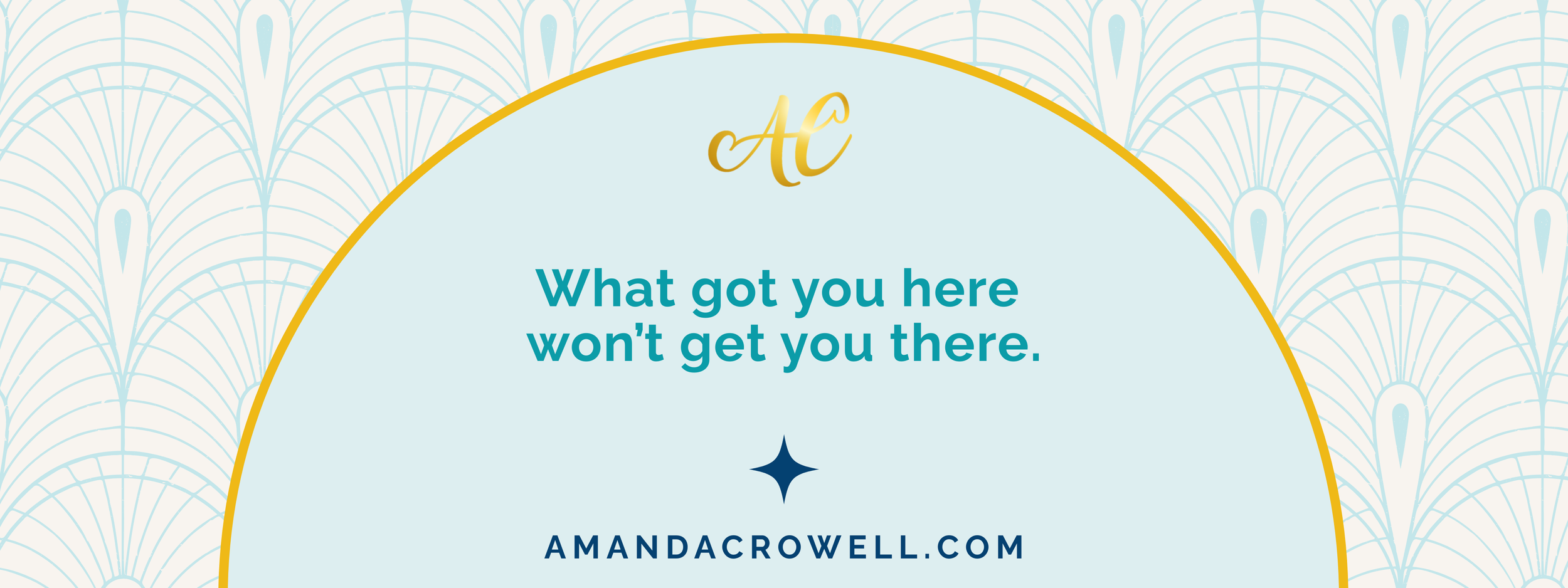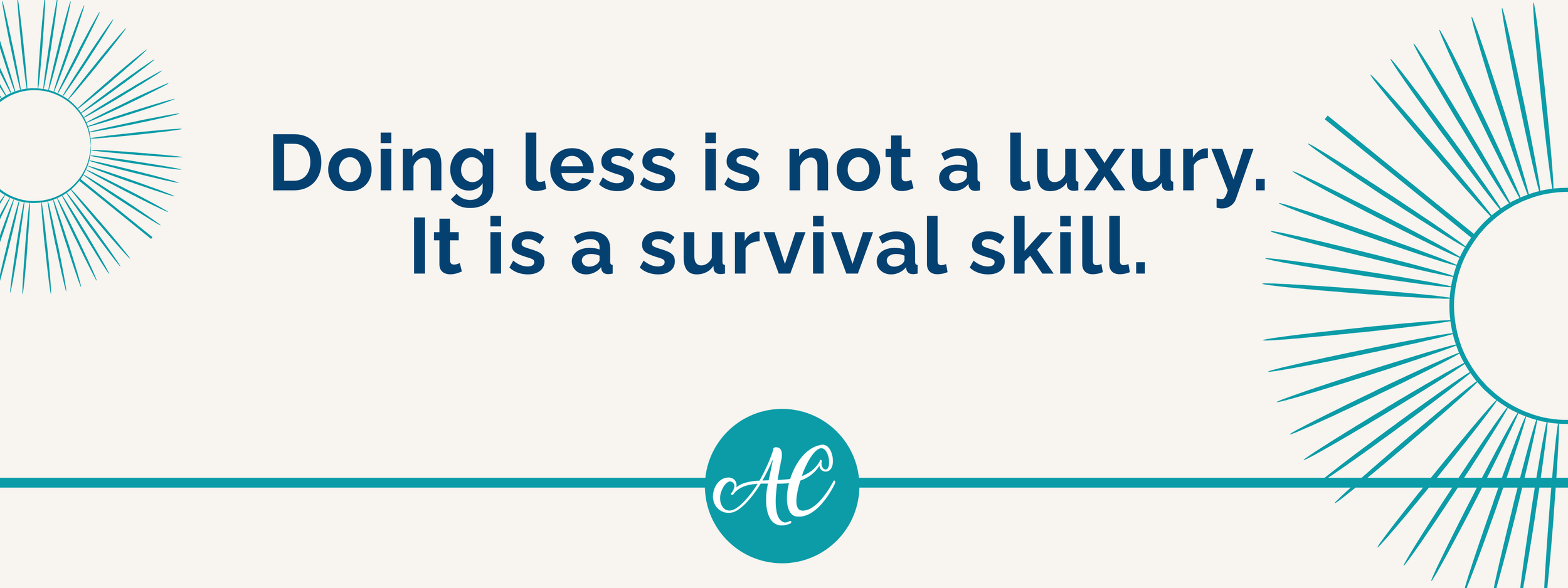Doing Less to Do More Great Work
High achievers are not known for doing less. Most of us are built on yes. Yes to late nights. Yes to extra projects. Yes to proving we can carry more than anyone else. For years, this strategy works. It builds reputations, opens doors, and creates access.
But at some point, the very habit that carried you forward becomes the thing that holds you back. Your Great Work — the work only you can do, the work that matters most — gets lost in the traffic jam of everything else you’ve agreed to do.
This September, I invited my community to explore what it really means to do less. Here are three perspectives to help you step off the treadmill of “too much” and create the space your Great Work requires.
Avoiding the October Crash
September always feels like the starting line. The kids go back to school. Work speeds up. New projects launch. It is like every car you’ve been keeping in the garage suddenly revs its engine and demands a place on the highway.
And one of those cars is your rally race car — your Great Work.
The question is: will it get the open track it needs, or will it crawl along in gridlock behind obligations, distractions, and “urgent” fires?
If you say yes to everything in September, October will become the crash zone. You burn out. You spend precious time recovering instead of moving forward.
The solution is simple but not easy. Do a project audit. Look at every car on your highway, and decide which ones need to pull off. Back out of commitments that no longer fit. Park projects that can wait. Say no to the new requests that would otherwise fill the space you’ve worked so hard to clear.
(For more instructions on how to do a project audit, read Chapter 3 of Great Work)
Your Great Work cannot reach full speed in gridlock.
The road has to be clear.
The Fall Garden Reset
If September is the starting line, it is also the harvest. A garden that has been producing all summer cannot keep up the same pace forever. If you try to keep every plant going, the soil itself becomes depleted.
Your work is the same.
Fall is the season to harvest what is ready, prune what is not, compost what has gone stale, and plant bulbs for what is coming next.
Harvest what’s ready. Perfectionism will tempt you to overwork projects that are already good enough. Finish them. Ship them. Get them off your plate. Ask yourself: What can you wrap up with courage and clear the space it’s occupying?
Prune what’s not. Some projects looked promising in the spring but never bore fruit. Let them go. Ask yourself: Which projects should you trim so they stop draining energy from what matters?
Compost the stale. Old commitments and outdated ideas may be cluttering your attention. Turn them into lessons, not active work. Ask yourself: What can you release that no longer fits?
Plant the bulbs. Choose now what you want blooming in the months ahead. This is the time to commit to the projects that matter most. Ask yourself: What will you plant today that you want to flourish by winter?




The soil of your time and energy cannot sustain everything forever. It needs to be replenished, not depleted.
Doing Less Is a Learned Skill
For many high achievers, doing less does not come naturally. You learned early on that saying yes was the way forward. Yes built your reputation. Yes got you noticed. Yes opened doors.
But what got you here will not get you there.
To transition from making other people’s dreams come true to doing your own Great Work, you need a different skill set — and a lot of courage.
Doing less means choosing yourself instead of waiting to be chosen. And you do that one choice at a time. One B- delivered instead of an A+. One project parked instead of juggled. One no spoken out loud. One commitment backed out of.
These survival skills — backing out, parking projects, doing B-work, and saying no — are not signs of slacking. They are the practical tools that protect your energy and make space for the work only you can do.
The Throughline
Whether you picture the September highway, the fall garden, or the learned practice of survival skills, the message is the same: doing less is how you finally make space to do more of what matters most.
Your Great Work cannot flourish in a traffic jam. It cannot thrive in depleted soil. And it will never happen if you wait for someone else to choose it for you.
Doing less is not about stepping back. It is about stepping fully into your own Great Work.





